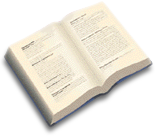| | ABOUT METIS |
Founded in 1982, Metis has established itself as one of Turkey's leading publishing houses, renowned for defending its independent spirit and radical commitment, celebrating critical thinking, original talent, and bringing distinguished letters from the world to generations of Turkish readers. With nearly 800 titles to its name, Metis is reputed for its careful translations and editorial integrity.
Metis list includes both fiction and nonfiction, specializing in high literature and critical theory. Some of the literary authors published in translation are Ursula K. Le Guin, Marguerite Yourcenar, Salman Rushdie, Henry Bauchau, Georges Perec, John Berger, J.R.R. Tolkien and Maurice Blanchot. The works of such distinguished Turkish authors as Murathan Mungan and Bilge Karasu are also published by Metis.
Metis nonfiction list features works of an interdisciplinary character that have the potential to intervene in the cultural climate of Turkey from a radical political perspective, such as those by Walter Benjamin, Max Horkheimer, Theodor Adorno, Edward Said, Immanuel Wallerstein, Emile Cioran, Slavoj Zizek, Judith Butler, Nurdan Gürbilek and Nilüfer Göle. World-class literary theorists including Gyorgy Lukacs, Tzvetan Todorov and Mikhail Bakhtin, philosophers such as Paul Ricoeur, Ludwig Wittgenstein and Roland Barthes and psychoanalytic masters including Sigmund Freud, Anna Freud, Melanie Klein, D.W. Winnicott and Heinz Kohut are also amongst the authors Metis has published in Turkish. |
Why Metis?
| | Metis: | The daughter of Titans Oceanus and Tethys, the first wife of Zeus. Metis, claimed to be wiser than gods and mortal man, was the goddess of wisdom and prudence, worker of integrity. Zeus swallowed Metis whole when she was pregnant with Athena, because, according to one interpretation, it had been prophesized that the second child she would give birth to, a son, would dethrone Zeus; according to another interpretation, Zeus wanted to be the sole owner of the power of reason that would grant him full mastery over the world. It is also claimed that Achaeans suppressed Metis's cult and arrogated all wisdom to Zeus as their patriarchal god. Born fully armed from Zeus's forehead, Athena, the goddess of War, Craft and Reason, has eventually come to represent wisdom, reason and purity. | | metis: | (or metif, metiff) mixed race; mixed blood; bastard. | | Metis: | Metis is what keeps Power from establishing itself as a totalized unity. As its ever resistant component, Metis leaves Power constantly lacking. Metis is not one and only, but multiple and varying, just like the color of struggle against Power. It could be fire, it could be flowing water… | | metis: | nobody. | | Metis: | A divine being that nobody worships. The nonexistent mother of Athena, as she is represented by mythographers as a 'motherless goddess'. Athena's mother is Metis, nobody. | | metis: | knowledge that Power detests. | | Metis: | The only condition for Zeus's supremacy was for him to swallow and incorporate Metis, and along with her, all coincidences and unpredictable events belonging to a time that cunningly evades him. Yet, even while in Zeus's stomach, Metis continued to give him counsel. | | metis: | reason, mind, wisdom; wise counsel; advise; planning; competence; skill, craftiness; magic; knowledge of potions and herbs. | | Metis: | Metis has infinite faces. She is both everywhere and non-existent in the history as we know it. Shapeshifter Metis is the sum of infinite forms that knowledge and knowing can take. | | metis: | hybrid, mixed; both night and day, both light and dark. | | Metis: | As an androgynous god, Metis is beyond the male-female binary that imposes a restriction. By swallowing Metis, Zeus removes this source of upheaval and conflicts between gods, hoping to establish a stable system with no place for adventures, surprises or sub-versions. | | metis: | cunning. | | Metis: | The cunning of Metis is a threat to all establishments. Metis uses her power of reason while in action in an unpredictable manner, in order to subvert the existing state of affairs and to eradicate even the seemingly strongest hierarchies. Metis passes this trait on to her children. | | metis: | cunning in war. | | Metis: | Rather than resorting to force in order to establish superiority in an action or conflict, Metis opts for an alternative. She uses the skill of the craftsperson, the acumen of a captain navigating rocky waters, the magical spark that Power scorns. Instead of fighting against nature, Metis responds to it with practical skills and acquired intelligence. In a conflict, one who possesses metis is at once focusing on the present, aiming at a long-envisioned future and taking into account the knowledge from past experiences. | | Prepared in 1997 by Kaya Şahin, an editor at Metis. Resources: M. Detienne and J. P. Vernant, Les Ruses de L'Intelligence (La mètis des grecs), Flammarion, Paris, 1974; Azra Erhat, Mitoloji Sözlüğü, Remzi, Istanbul, 1997; Michael Grant, Myths of the Greeks and Romans, Mentor Books, New Jersey, 1962; Robert Graves, The Greek Myths, Penguin, London, 1988; Saliha Paker, ''Metis' Çeviri Yaşamalı', Metis Çeviri, 1992; Random House Unabridged Dictionary, Random House, Inc., 2006. | | | | | |




















